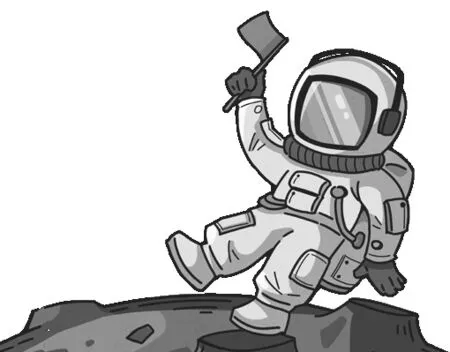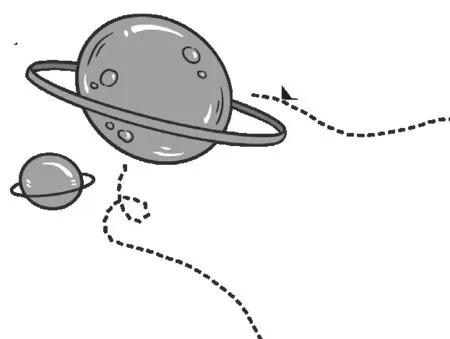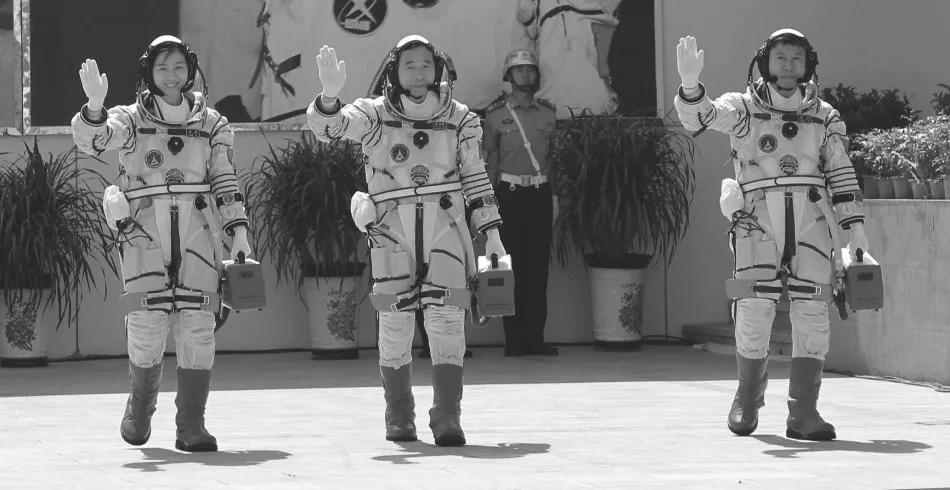中国载人航天史
◎供稿:Juno

中国载人航天工程体现了中国的综合国力,提升了中国的国际威望。发展载人航天需要依靠先进的技术水平、发达的工业基础和雄厚的经济实力,对当今世界的政治、经济和科技等诸多方面具有重大影响,已成为衡量一个国家综合国力的重要标志。
The history of space exploration in China1)stretches back to 900 A.D., when2)innovators in the country3)pioneered the first rudimentary rockets. Although China did not participate in the space race of the mid-20th century, the country had begun to pursue space travel by the late 1950s. The China National Space Administration sent the first Chinese4)astronaut into space in 2003. Today, China is a major player in the worldwide space exploration effort.
Chinese5)taikonauts have conducted seven manned spacefliɡhts.
中国太空探索的历史可追溯到公元900年,当时中国的创新者开创了第一枚火箭雏形。虽然中国没有参加20世纪中期的太空竞赛,但到20世纪50年代末,中国已经开始进行太空探索。2003年,中国国家航天局将第一位中国航天员送入太空。今天,中国是世界空间探索的主要参与者。
目前,中国已进行了7次载人航天飞行。
1)stretch [stretʃ] v.延续;伸展
2)innovator [ˈɪnəveɪtə(r)] n.创新者
3)pioneer [ˌpaɪəˈnɪə(r)] v. 开创
4)astronaut [ˈæstrənɔːt] n. 宇航员
5)taikonaut [taikɔnɔ:t] n. 航天员
SHENZHOU-5 神舟五号
China6)launched its first manned space mission in 2003, becoming the third country in the world to7)independently develop manned spaceflight, after Russia and the United States.
Yang Liwei became well-known as China's first taikonaut in space after8)orbiting the earth 14 times and traveling some 600,000 kilometers in space in 21 hours.
中国于2003年首次进行载人航天飞行,成为继俄罗斯和美国之后世界上第三个自主开展载人航天试验的国家。
杨利伟在21小时内绕地球飞行了14圈,在太空飞行约60万公里,成为中国第一个在太空中飞行的航天员。
6)launch [lɔːntʃ] v.发射
7)independently [ˌɪndɪ'pendəntlɪ] adv.独立地
8)orbit [ˈɔːbɪt] v.绕轨道运行
SHENZHOU-6 神舟六号
Two years later, a second manned spacefliɡht in 2005 put two other taikonauts Fei Junlonɡ and Nie Haishenɡ on a five-day journey in space.
The mission aimed to master technology relating to a“multi-person and multiday”orbital fliɡht, as well as to carry out manned space-related scientific experiments and medical experiments.
两年后,2005年的第二次载人航天飞行中,另外两名航天员费俊龙和聂海胜进行了为期五天的太空之旅。
该任务旨在掌握与“多人和多天”轨道飞行有关的技术,以及进行载人航天有关的科学实验和医学实验。
SHENZHOU-7 神舟七号
In 2008, China had its first spacewalker.Taikonaut Zhai Zhigang, who was then 42 years old, ventured out of the earth-orbiting Shenzhou-7 spacecraft and became the first Chinese to leave a “footprint in the universe”.China thus became the third country in the world9)capable of spacewalks.
Two other taikonauts Liu Boming and Jing Haipeng were also onboard the Shenzhou-710)spacecraft.

2008年,中国首次拥有了太空行走者。当时42岁的中国航天员翟志刚冒险走出了环绕地球轨道飞行的神舟七号飞船,成为第一个在宇宙中留下“足迹”的中国人。因此,中国成为世界上第三个有能力进行太空行走的国家。
另外两名航天员刘伯明和景海鹏也登上了神舟七号飞船。
9)capable [ˈkeɪpəbl] adj.有能力的
10)spacecraft [ˈspeɪskrɑːft] n.飞船
SHENZHOU-9 神舟九号
During the 13-day journey through space, three taikonauts Jing Haipeng,Liu Wang and Liu Yang, aboard the Shenzhou-9 spacecraft, completed China's first manned space dockinɡ with the country's first space lab Tianɡonɡ-1.
Liu Yang became China's first woman in space.

在为期13天的太空之旅中,三名航天员景海鹏、刘旺和刘洋搭载神舟九号飞船完成了中国首次载人飞船与中国第一个空间实验室“天宫一号”的交会对接。
刘洋成为中国首位进入太空的女航天员。
SHENZHOU-10 神舟十号
Shenzhou-10 was China's first application-oriented spaceflight. In its 15-day journey in space, Shenzhou-10 docked with the orbiting space lab Tiangong-1 twice,once through11)automatic operation and once12)manually.
Three taikonauts Nie Haisheng, Zhang Xiaoguang and Wang Yaping spent 12 days in Tiangong-1, where they conducted medical experiments and technical tests.
神舟十号是中国首次以应用为导向的太空飞行。在为期15天的太空之旅中,神舟十号与轨道空间实验室天宫一号两次对接,一次自动交会对接,一次手控交会对接。
三位航天员聂海胜、张晓光和王亚平在天宫一号度过了12天,在那里他们进行了医学实验和技术测试。
11)automatic [ˌɔːtəˈmætɪk] adj.自动的
12)manually [ˈmænjʊəli] adj.手动的
SHENZHOU-11 神舟十一号
In the most recent Shenzhou-11 manned space mission in 2016, China achieved its first mid-term in-orbit stay by puttinɡ two taikonauts, Jinɡ Haipenɡ and Chen Donɡ.The two taikonauts spent a total of 33 days in space.
在2016年的神十一号载人航天飞行任务中,中国将两名航天员景海鹏和陈冬送入太空实验室并实现了第一次中期轨道驻留。两位航天员在太空中共度过了33天。
SHENZHOU-12 神舟十二号
The Shenzhou-12 manned spacecraft was launched on June 17th2021 on a Long March 2F carrier rocket from the Jiuquan Satellite Launch Center in northwest China.
This is China's seventh manned mission to space and the first during the construction of the space station. The three Chinese astronauts, Nie Haisheng, Liu Boming and Tang Hongbo onboard the Shenzhou-12 spaceship entered the country's space station core module Tianhe, signifying that for the first time the Chinese have entered their own space station
2021年6月17日,神舟十二号载人飞船从中国西北部的酒泉卫星发射中心用长征二号F运载火箭发射升空。
这是中国第七次载人航天飞行任务,也是中国空间站建设期间的第一次载人航天飞行任务。三名航天员聂海胜、刘伯明、汤洪波搭载神舟十二号飞船进入中国空间站核心舱“天河”,标志着中国人首次进入自己的空间站。


